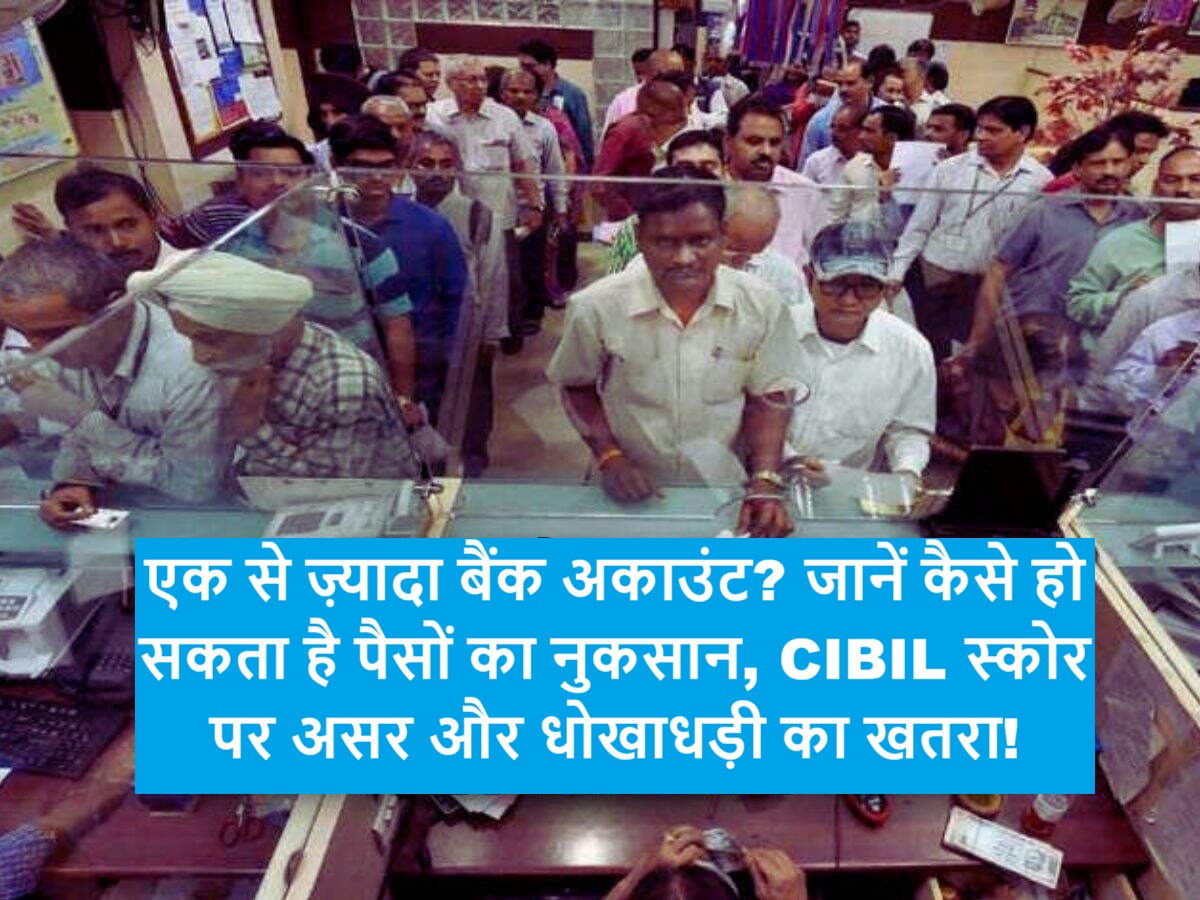News India Live, Digital Desk: (Single Bank Account) Often, we open many bank accounts on changing jobs or due to any special offer. This may seem common, but do you know that keeping more than one bank account can prove to be more harmful for you? Especially for salaried people, it is easier and beneficial to have the same savings account rather than handling many accounts. Let’s understand why:
Why is a bank account better? (Why one account is better?)
-
Easy Management: It is very easy to keep an account account, track it.
-
Facility in ITR filing: While filling the Income Tax Return (ITR), you get all the banking information in one place, which makes the process simple.
-
Less trouble, more benefits: Often banks waive several fees on an account, such as – annual fee (AMC) of debit card (AMC), SMS service charge, or charge for not having minimum balance (with certain conditions).
Disadvantages of keeping more than one bank account:
-
Increased Fraud Risk:
When we change the job, the old salary account is often not used and becomes ‘inactive’. Our eyes are less on such accounts and they can easily come on the target of fraudsters. Your information may fall in the wrong hands or an account may be misused. -
Impact on Cibil Score:
It is necessary to maintain a minimum balance in every bank account. It can be difficult to keep in mind when many accounts. If there is no minimum balance maintenance in an account, the bank can put penalty. This penalty can negatively affect your CIBIL score, which can cause problems in taking loans in the future. -
Unnecessary expenses:
Some fees are associated with every bank account, such as:-
Annual Maintenance Charge of Debit Card (AMC)
-
SMS Alert Charge
-
Penalty for not keeping minimum balance
The more accounts you eat, the more these fees you have to pay as many times, which puts unnecessary burden on your pocket.
-
-
Locked Funds & Lost Opportunity:
In order to maintain a minimum balance in every account, your money remains stuck like this. Think, if ₹ 10,000- ₹ 20,000 minimum balance is to be kept in 3 accounts, then a lot of money has been blocked. If you invest this money elsewhere (eg mutual funds or FD), then you might have got more returns than 3-4% interest of the bank’s savings account. -
Income tax complications:
According to the Income Tax Rules, a total of up to ₹ 10,000 received from all savings accounts in a financial year gets a tax exemption (Section 80TTA). If your interest is more than this, then it is taxed and the bank can also deduct TDS.
It may be that the interest of one of your accounts is less than ₹ 10,000, but when the interest of all accounts is added, this limit can be crossed. If you did not give this full interest income information while filing ITR, then it can be considered inadvertently tax evasion and you can get a notice from the Income Tax Department.
What to do? (What to do?)
-
Make a list of all your bank accounts.
-
The accounts you are not using (especially the old salary account), go to the bank and stop them duly.
-
Try to keep one or a maximum of two accounts on according to your need, which you can easily manage.
A little caution can protect you from unnecessary expenses, risk of fraud and tax related problems.
